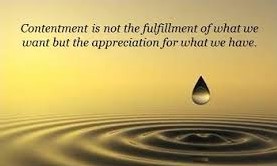
As we celebrated another thanksgiving, we were grateful to spend time with some of our church family. I am so glad we live in a country that celebrates a day of gratitude.
I think Thanksgiving means so much to Debbie and I because like the Pilgrims, we are immigrants and have been blessed by God in these United States. The word “Pilgrim” means, “a person on a sacred journey in a foreign land.” We must remember that we who are followers of Jesus are all pilgrims and foreigners in this world.
Thanksgiving is all about God and recognizing all the blessings He has freely given us. In a world that has all but pushed God away in every sphere of society, it is amazing that we still celebrate thanksgiving.
Dante Rossetti once said; “The worst moment for the atheist is when he is really thankful and has nobody to thank”.
The Psalms are full of wonderful anthems of praise and thanksgiving, and Psalm 103 is one of them.
It is interesting to see what David focuses on as he thanks God. Not once in that entire Psalm does he give thanks for his family, his home, his possessions, or even his throne. David doesn’t give thanks for many of the things most people would mention. Instead, he praises God for forgiving his sins, healing all his diseases, redeeming his life from the pit, crowning him with love & compassion, and satisfying his desires with good things so that his youth was renewed. David couldn’t lose those things.
Jesus emphasized the same thing in the Sermon on the Mount (see Matthew 6:19-21). How thankful are we for the things we can never lose?
Psalm 103:2 says, “Bless the LORD, O my soul, and forget not all his benefits,”
This is such a crucial verse. If we forget the blessings of the Lord, we will quickly become ungrateful, take things for granted, and maybe even begin to feel entitled. The danger of this is that we become focused on what we don’t have, rather than on the many things we receive from the Lord that we don’t deserve.
Psychologists will tell you that there is tremendous benefit in being thankful. It is needed for our physical health and for developing healthy relationships. I would like to suggest that thankfulness becomes a spiritual discipline that we can and must develop, and it will produce enduring fruit.
The Bible is full of commands, and it encourages us to be thankful (see Ephesians 5:19-20).
We know that the Bible is practical and recognizes the pain and suffering that we encounter on life’s journey. The command to be joyful and give thanks is not an excuse to turn a blind eye to pain and suffering. Rather it reveals to us that are unable to be continually thankful without the presence and the power of the Holy Spirit in our lives.
Real thankfulness is not dependent on our circumstances, it is a response to the goodness of God and the Gospel message.
The Psalms are full of examples of thanksgiving during pain. Several the Psalms of David begin with him crying out in pain, but by the end of the Psalm, as he recognizes the hand of God, he thanks and praises the Lord.
Our lives are fragile, and we easily forget how dependent we are on God for everything we have (see Psalm 103:13-16). Our lives may be fragile and fleeting, but to God we are precious in His eyes, and He will never forget us.
Our Father provided a way to redeem us and bring us into relationship with Himself. Our sins and prideful nature separate us from God, and unless our sins are atoned for, we will never enter into eternal life in relationship with God. Psalm 103:12 says, “as far as the east is from the west, so far does he remove our transgressions from us.” That is something to be thankful for!
Tim Keller observed: “The Christian gospel is that I am so flawed that Jesus had to die for me, yet I am so loved and valued that Jesus was glad to die for me. This leads to deep humility and deep confidence at the same time. It undermines both swaggering and sniveling. I cannot feel superior to anyone, and yet I have nothing to prove to anyone. I do not think more of myself or less of myself. Instead, I think of myself less.”
Isn’t it amazing that two people who live in similar situations can have such a different outlook on life. One person is negative and complaining, while the other is optimistic and joyful. The difference is gratitude.
Praise and thanksgiving make all the difference in life.
Each moment that we’re given is a precious gift from God. We can choose to have a thankful attitude and live each moment full of joy.
Being thankful is an act of worship because it reminds us of our provider, our Heavenly Father.
My challenge to you this week is that as you go about your day, make a point of being grateful for the little things, and if you struggle with identifying them, ask the Holy Spirit to give you eyes to see the blessings all around you.
As you do that, you will be praying without ceasing!
1 Thessalonians 5:17 says, “pray without ceasing,” we repeat that verse but often overlook the full sentence starting in verse 16, “Rejoice always, pray without ceasing, give thanks in all circumstances; for this is the will of God in Christ Jesus for you.” 1 Thessalonians 5:16-18.
We are called by God to rejoice always, pray without ceasing and give thanks in all circumstances.
Why? Because it is the will of God in Christ Jesus. God knows that this is the best for you and me. A spiritual discipline that will produce a harvest of righteousness.


